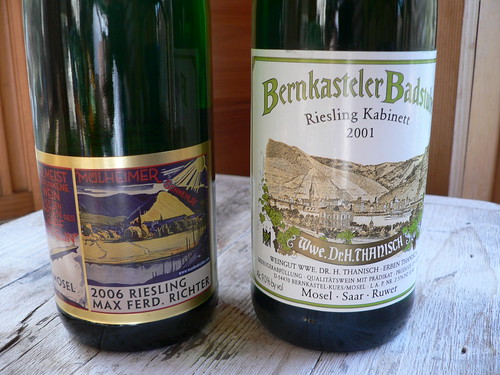 Like many people who review wine, I use the 100 point scale. It's not because I think this is the best system -- and I've proposed alternatives -- it's just the current industry standard. When I was invited to write here, my first thought was to just get my latest review from my blog and cross-post with some additional detail on why I rated the wine 89 and not 90. But in looking back, I see that 89 has become a more popular score for me so I wanted to reflect on why for my first post here at The 89 Project.
Like many people who review wine, I use the 100 point scale. It's not because I think this is the best system -- and I've proposed alternatives -- it's just the current industry standard. When I was invited to write here, my first thought was to just get my latest review from my blog and cross-post with some additional detail on why I rated the wine 89 and not 90. But in looking back, I see that 89 has become a more popular score for me so I wanted to reflect on why for my first post here at The 89 Project.Let's look at my pair of Rieslings from Wine Blogging Wednesday 45. Both earned 89. Why? Because I liked them both about the same. They were tasted side-by-side over a couple days and I couldn't pick one over the other. But why not 88 or 87?
To answer that, I have to go back to the mechanics of how I score wine. When I somewhat reluctantly adopted the 100-point scale a few years ago, I looked at how Robert Parker did his reviews. He helpfully posts this on his website. So I follow this same process with each element rated on it's own, then a total score tallied afterward. In a large tasting, this final score does not get calculated until after all wines have been tasted. In the case of the Rieslings, both wines scored the same amount of total points but the individual elements were different.
So is this a precise science? No, but I do try to keep my scores as consistent as possible when tasting a group of wines. But what makes a wine a 90 and not 89 is probably a more interesting question. And the answer is, "something extra."
Let's face it, there are more very good wines on the market today than at any time in history. Between modern winemaking and viticulture techniques there has been an equalization in quality across the world. Great wines are coming from the old and new world at almost every price point so no country has a lock on wine quality (branding, however, is another story). So with that as the backdrop, I interpret "something extra" as going beyond just well made, varietally correct, nicely balanced wines. It is definitely a subjective judgement but you know it when it's encountered.
So I guess this is a long way of saying that the difference between an 89 and a 90 is not an objective calculation but a subjective judgment. But you probably already knew that...





1 comment:
interesting concept here, I'm going to have to be on the lookout for 89s now!
Post a Comment